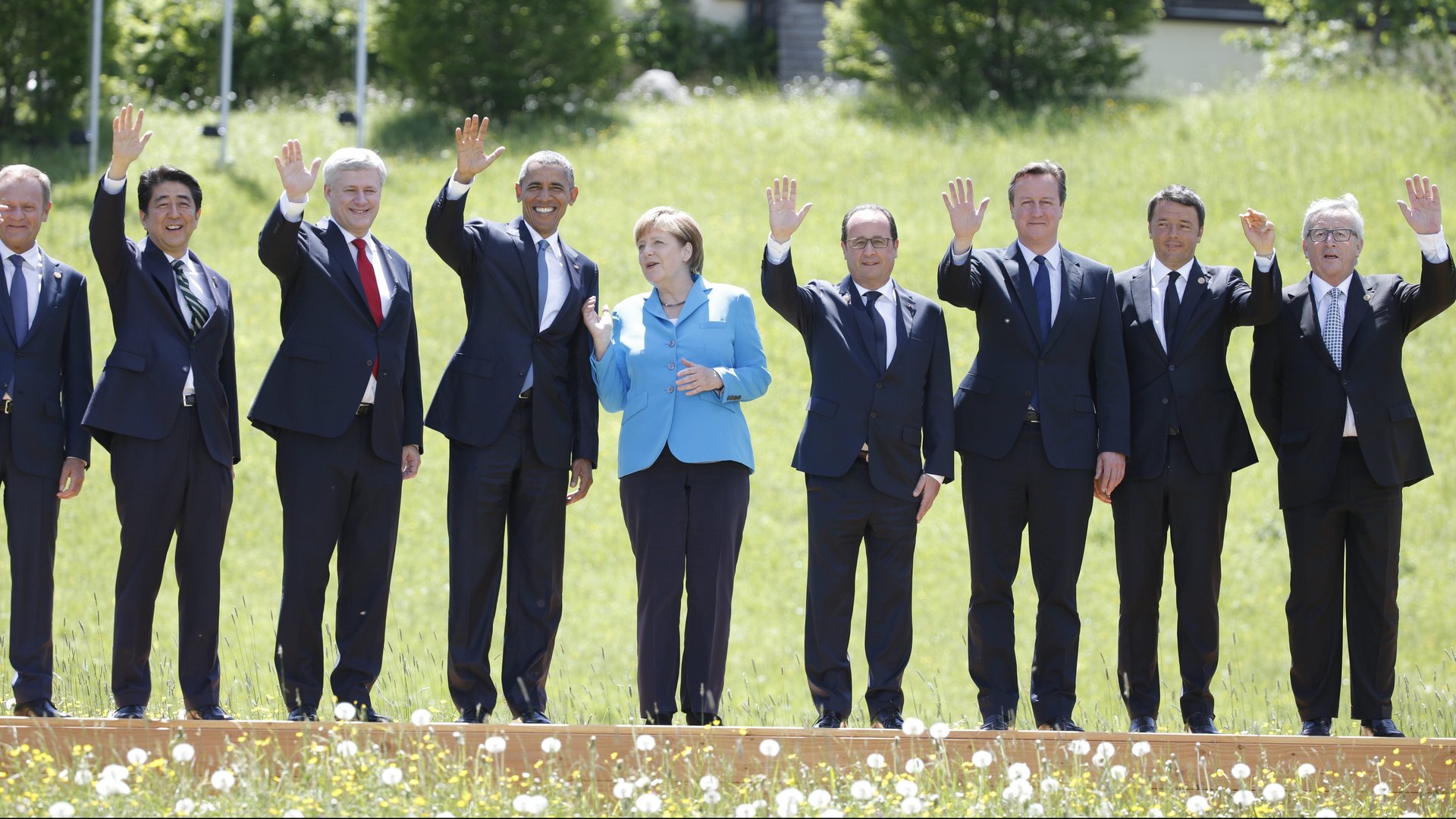The five most-searched female world leaders, according to Google
While Hillary Clinton lost to Donald Trump in the 2016 US presidential election, leaving one of the world’s highest and hardest of glass ceilings intact, 77 women in other countries have been elected president or prime minister in the modern era.


While Hillary Clinton lost to Donald Trump in the 2016 US presidential election, leaving one of the world’s highest and hardest of glass ceilings intact, 77 women in other countries have been elected president or prime minister in the modern era.
Even after attaining office, these women have typically faced challenges their male counterparts did not. Female leaders are frequently subjected to public misogyny, heavy scrutiny of their sartorial choices, and derision for supposedly lacking charisma. Voters still largely do not trust women to lead; a 2016 survey by the World Economic Forum found that only 52% of respondents between the ages of 18 and 35 were very comfortable with a woman as president or prime minister.
But as with their male counterparts, they generate a lot of interest, whether as role models, scandal magnets, or simply by virtue of their positions. Of those female leaders who have reached the top echelons of governments around the world, the most-searched for on Google are:
Angela Merkel, chancellor of Germany
Merkel, 62, a former research scientist with a doctorate in physical chemistry, has been running Germany’s government since 2005 when she became the country’s first female chancellor. As right-wing political movements gain ground around the world, Merkel has been pegged as a global savior and the liberal West’s last defender. But the chancellor, who is up for a fourth term in Germany’s 2017 elections, is going to face a tough fight with two-thirds of Germans of the opinion that it is time for a new leader.
Park Geun-hye, president of South Korea
Park, 65, is the daughter of former president Park Chung-hee, and served as the country’s acting first lady at the age of 22 after her mother’s death in 1974. She rose quickly in the party and Feb. 2013 she was elected the country’s first female president. Though she promised a “new era of government” and said that she would be a “president for the people” she has become, a controversial figure for her strongman leadership tactics. In 2016, she was implicated in a massive corruption scandal, and was impeached by a parliamentary vote in December.
Beata Szydło, prime minister of Poland
Szydło, 53, was born and raised near the southern Polish coal-mining town of Brzeszcze, the daughter of a coal miner. She became mayor at the age of 35, and later joined the conservative, nationalist Law and Justice party. An MP and veteran of provincial politics, she was pitched as the “fresh, moderate face of the Polish right.” In 2015, she became Poland’s third female prime minister, following Hanna Suchocka and Ewa Kopacz. Since the election, she has been criticized for weakening democracy in the country, refusing to accept refugees, and supporting a ban on abortion.
Michelle Bachelet, president of Chile
Bachelet, 65,was a medical student when Augusto Pinochet came to power in 1973, and her father, an air force brigadier, was arrested and tortured for opposing the coup. Bachelet herself was also taken into custody and tortured, but was released into exile. She returned to Chile after Pinochet was ousted and worked in her home country as a doctor, before becoming health minister and going into politics. When she was elected in 2006, Bachelet became the country’s first female leader and was wildly popular for her role in the country’s economic recovery, expanded access to education, and overhauled constitution. But her second term, which began 2014, has seen her popularity plummet, exacerbated by a recent forest-fires crisis.
Kolinda Grabar-Kitarović, president of Croatia
In 2015, Grabar-Kitarović, now 48, became Croatia’s first female president since the institution of multi-party elections in 1990, winning a general election by a narrow margin. Grabar-Kitarović has been in politics since the early 1990s, and has made a steady climb up the political ladder, holding roles as foreign minister, assistant to the NATO secretary general, Croatia’s ambassador to the US. She is a conservative member of the Croatian Democratic Union, the center-right party that pushed the country towards independence from the former Yugoslavia in 1991. Some analysts see Grabar-Kitarović’s 2015 victory as a signal that the country is shifting to the right.